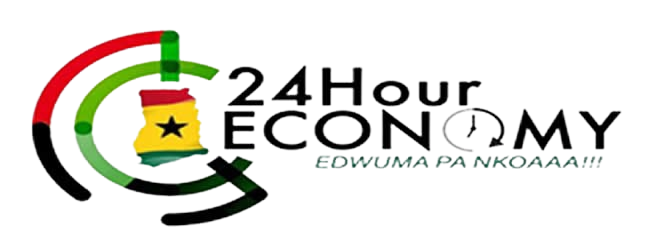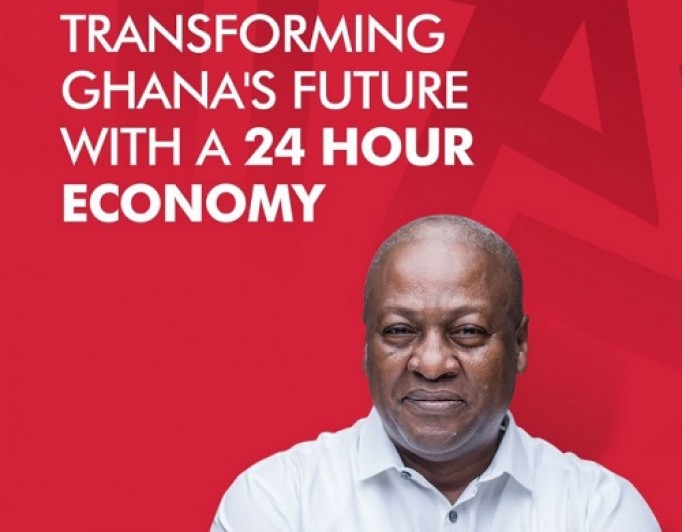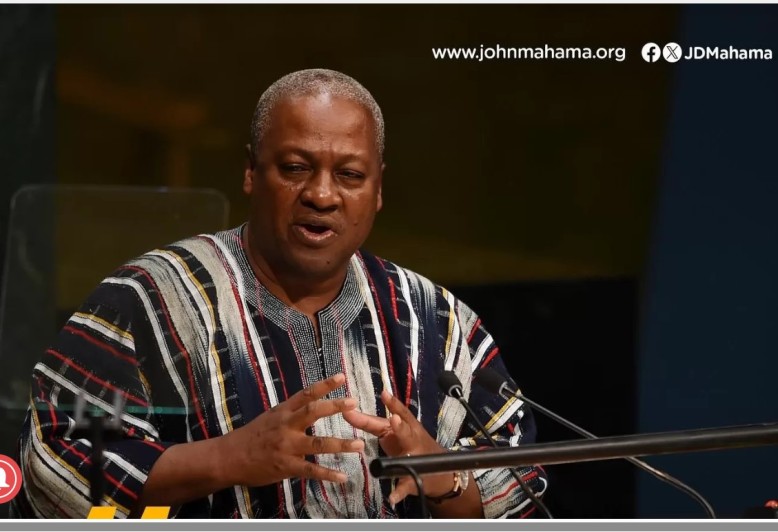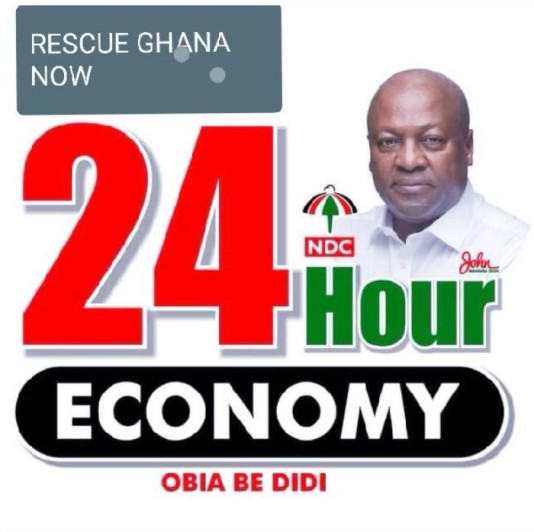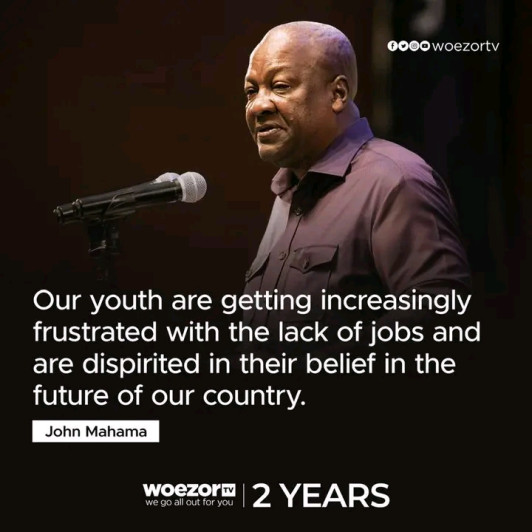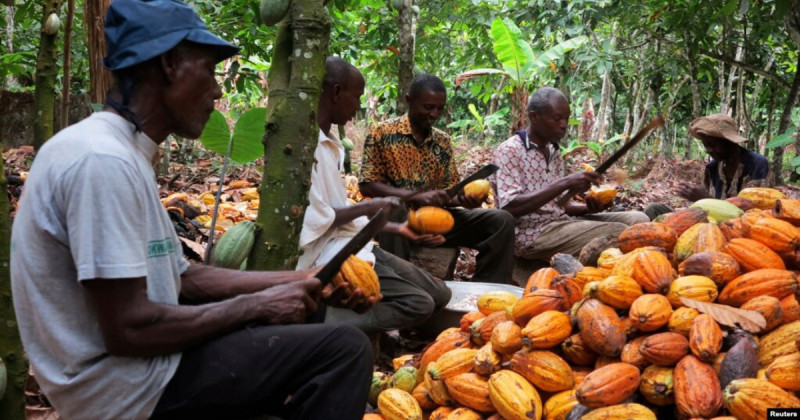
Mahama’s 24-hour economy is crucial for Ghana’s economy to grow
A 24-hour society can ramp up revenue, boost productivity, encourage flexible working hours, protect the health of workers, create millions of sustainable jobs, meet consumer demands and ultimately drive economic growth and development if Ghana is deliberate about its implementation and put in place the right architecture to support it.
With an economy on the International Monetary Fund (IMF)’s life-saving support, Ghana will require more than a politics-as-usual approach to revive its junk economy, stem the tide of corruption which is on the rise, restore fiscal integrity, bolster national pride and public confidence in the government, and create sustainable (not political) jobs.
This is why the night and evening time economy proposed by the ex-Ghanaian leader and the 2024 Presidential candidate of the opposition National Democratic Congress (NDC), John Dramani Mahama stands out as a holistic policy that will breathe life into the various sectors of the ailing Ghanaian economy.
When he addressed Ghanaian business moguls in December 2023, Mr Mahama told the leaders that:
“The 24-hour policy will be anchored as an economy that runs around the clock with a three-shift work schedule in many sectors. The intent is to transform Ghana into, first, a self-sufficient and then an export-led economy.”
He further explained that his government will combine both public and private sector involvement to realise the 24-hour economy, establish a comprehensive policy framework, introduce legislation, and provide favourable tax incentives to businesses that adopt and implement the policy.
But this policy, as was expected when it was first articulated, has received a serious push-back from the governing New Patriotic Party (NPP), its supporters and government-financed commentators who, I am convinced may have been threatened by the soundness of a night and evening time society in Ghana, particularly at a time the current regime has ran aground the economy of the country through official sanctioned-corruption, mismanagement, political carelessness, and unsound economic policies.
“It’s a confused policy…24-hour economy is a by-product of an economy that we want to move to digitisation…even in China, after 6 pm, shops are closed. Are you better than the US? Are you far more advanced than China?” the NPP National organiser, Henry Nana Boakye quizzed on Peace FM on February 10, 2024.
“When you ask them what are [the] details, they can’t say anything…It cannot work,” he added.
The Minister for Lands and Natural Resources, Samuel A. Jinapor, has described the 24-hour economy policy as a “mere slogan.”
Speaking to party supporters on February 17, 2024, the Member of Parliament for Damongo Constituency said: “For four years … in the day, tailors could not work, in the day, there was no economy for welders, carpenters, fitters, and thousands and millions of Ghanaians, how then are you going to provide a 24-hour economy?”
However, a scrutiny of the criticisms levelled against Mr Mahama’s nighttime economy proposal, so far, will reveal that wisdom has been shoved into the dustbin as usual for political expediency and unscientific arguments. I think we will need to remind ourselves that Ghana at night is crucial for the country’s present tattered economy and it holds enormous potential for shared prosperity, economic sustainability, growth and development.
Some transport operators, restaurants, and shops indeed operate a 24-hour schedule across the country. A visit to Agbogbloshie, Madina and Lapaz, all suburbs of Accra, in the night, will show that the night-time economy is already in operation as some sellers continue to display and sell their products to interested buyers. But it is also true that this is not a government-induced schedule backed by a deliberate policy structure. Know this: the government of President Nana Akufo-Addo does not provide any special incentives to the businesses that are already operating a 24-hour schedule, nor is there legislation to stimulate the nighttime society. This is non-existent.
So, therefore, any criticisms directed at the night-time policy should be logical, sound, scientific, and devoid of the usual politics known in this country since the dividend of a 24-hour economy will benefit every Ghanaian irrespective of one’s political leaning.
This is what I understand Mr Mahama to be saying when he talked about the 24-hour economy that he will push through relevant legislation to support the nighttime society, enrol both the public and private sector onto the programme, provide some incentives, including exciting tax regimes to businesses that sign up for the programme, and work with the health authorities in the country to address any health and safety-related issues.
“Favourable tax policies will be adopted so that businesses can reduce their operational cost and stay competitive. [Also], companies that sign up for the 24-hour economy policy will enjoy smart metering calibrated to charge a lesser tariff (per KW/h) for power consumed during off-peak hours at night based on a Time of Use (ToU) tariff system,” Mr Mahama told the business leaders as he campaigns for a return to the country’s top job.
The United Nations (UN) has said that by 2050, over 80% of the world’s population will live in urban areas. To contain the increasing pressure on Ghanaian cities, there is the need to create more on the same land and this includes finding creative ways to grow in the use of time. This means exploring how to make more use of the evening and night time which available data has shown provides jobs, and supports community cohesion and social inclusion. For us in Ghana, we should see this as a challenge to expand the operations of businesses into the night.
The night-time economy (NTE) is split into two halves, the evening economy which is between 6 pm and 12 am, and the late‑night economy which starts at noon and ends at 6 am, when the morning rush hour begins.
Research has shown that the UK’s nighttime economy (NTE) creates an average of £66 billion per year in revenue and that of Australia was worth A$102, up 13% in three years. Also, the NTE in New York City is estimated to contribute US$10 billion to the city’s economy.
“The Night-time economy (NTE) adds value to various industries, including retail, transport, catering and the creative industries. This produces an overall rise in a location’s cultural value,” the authors of ‘A Guide To Managing Your Night Time Economy,’ a report about the night-time economy in Europe and America have said.
A study of the operation of night societies in America and Europe will show that the driving factors and benefits of a 24-hour society are; commercial competitiveness, consumer demand, and a government-induced enabling environment. However, research points to a possible linkage between long working hours and health, such as cardiovascular problems, stress and psychological problems, and decreased birth weight for pregnant women. The health and safety issues can be addressed when the government learn to work seamlessly with health authorities in the country.
The findings of the studies referred to above showed that Ghanaians stand to benefit immensely from a night-time economy if well implemented.
My fear here, however, is that this policy will suffer the present fate of the one-district-one-factory (1D-1F) policy of President Nana Akufo-Addo which would have created millions of jobs across the country and expanded our revenue base if it had been properly implemented. But time has taught Ghanaians that the 1D-1F policy, like its counterpart - Planting for Food and Jobs, was nothing but a political slogan concocted to win precious votes. I am convinced the 24-hour economy can do better if we are deliberate about its implementation backed by a sound policy architecture.
The author recommends that the NDC flagbearer will have to educate his party executives, supporters and communicators on this policy since they appear confused and disoriented about its operation. Already, a few comments I have heard from some party leaders, including Felix Ofosu Kwakye, an NDC Parliamentary candidate and spokesperson of Mr Mahama on the 24-hour economy showed they are as confused and inconsistent in their thoughts as critics of the policy.
Communicating a major and serious policy like this to the public will require the party leadership and communicators to be consistent and coherent. The present status quo where NDC members carelessly say what they understand about the 24-hour economy which often contradicts the message put out by the party’s flagbearer, should be avoided as early as possible.
Again, it is suggested that for all Ghanaians to reap the benefits of living in a 24-hour society, Mr Mahama will have to consider creating an independent Night Time Commission under the supervision of the Ministry of Employment and Labour Relations to work with industries to turn Ghana into one of the most progressive countries in the way it plans, riding on strong evidence base and digitisation to inform its activities.
More than ever, we will need to attract public and private investment into the country which will pave the way for new ventures and interventions that will make Ghanaian cities, towns and regions safer, livelier, happier, cleaner, and more vibrant during the day and night. A night-time economy is the game-changer that will provide this benefit to Ghanaians when effectively implemented.
Ghana at night is the best deal for the country’s present self-induced economic woes. It is doable and replicable, so let’s all embrace it.
**
The author, A. Kwabena Brakopowers, is a private legal practitioner, journalist, and essayist who has written extensively on education, international relations, legal matters, social, political, and economic issues of major concern to all Ghanaians. You can reach him at Brakomen@outlook.com
Disclaimer: "The views expressed on this site are those of the contributors or columnists, and do not necessarily reflect 24houreconomy.org’s position. 24houreconomy.org will not be responsible or liable for any inaccurate or incorrect statements in the contributions or columns here."
Share On Social Media
24-HOUR ECONOMY
Economy
Related News
News

24-Hour economy policy a major improvement on past fragmented initiatives – IMANI Africa
Read More
GPHA launches full 24-hour operations at Tema and Takoradi Ports in response to presidential directive
Read More
